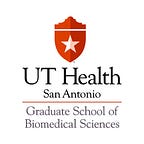Final Words: Allison Crawford, Nursing Science Ph.D.
Your name, program, dissertation title, mentor name.
Allison Diane Crawford, BSN, RN, PhD Nursing Science Candidate
The Experiences of Latina Mothers Impacted by Incarceration
Mentor: Lisa Cleveland, PhD, APRN, CPNP-PC, IBCLC, FAAN
Please tell me about yourself, why did you pick UT Health San Antonio, and your program?
My son and I in front of the state Capitol when I went to testify for HB 1308 this past 87th legislative session (2021)
I chose UT Health San Antonio because of my research focus in serving underrepresented groups during the perinatal period. I saw the disparities that disproportionately influence certain populations. I was also exposed to several research studies and began working with several initiatives that were headed by UT Health San Antonio School of Nursing. I had decided to continue my degree at UT Health San Antonio because I identified my research focus aligned with the mission of the school.
What has been the highlight of graduate school so far? Have you won any awards or have there been any achievements you’ve been proud of?
Me testifying on behalf of HB 1651 during the 86th legislative sessions (2019)
The highlight of graduate school for me has been getting involved in advocacy, legislation and participating in research with the maternal child research team. Growing research with the maternal child research team is exciting and fulfilling. I love that teamwork and learning from others who are passionate about the same topic.
Also participating in informing legislation at the state level really allowed me to see the influence a researcher can have on the community and how much it is imperative for nursing researchers to get involved. In 2018, I worked with the Texas Jail Project to write the background for HB 1651. I was also asked by State Representative Mary Gonzalez (D) to testify on behalf of HB 1651 during the 86th legislative session and HB 1308 in the 87th legislative session to improve perinatal care for Texas inmates.
Jenna Bush Hagar at the conference: Women Unshackled
I have been fortunate to be the recipient of several awards throughout my education at UT Health San Antonio. My most recent awards have been: the Joe and Teresa Long Scholarship, the Graduate Nursing Research Scholarship, the UT Health San Antonio Graduate Nursing Scholarship Summer Recipient, Sigma Theta Tau Nurse Leader Alpha Delta at Large, and the , UT Health San Antonio Graduate Nursing Student Social Justice Scholar Award.
Please provide a few sentences summarizing your dissertation. What was the experience like for you?
My dissertation used qualitative description to describe the experiences of Latina mothers following arrest. I used the Reproductive Justice framework to evaluate barriers that hindered 1) the right to bodily autonomy, 2) the right to have or not have children, and 3) the right to live in safe and sustainable environments following arrest. The themes that emerged described the participants continued discrimination, trauma, resiliency and desires. The most common traumatic event was sexual violence however the most significant and devastating traumatic event described by the sample was family separation. The most significant barrier were the economic barriers associated probation and time demanded by medication assistance therapy. The trauma and barriers in this population were described to exacerbate after arrest. Participants had resiliency when they had belonging and a sense of a higher purpose. Collectively, their desires were to have equal civil and reproductive rights and acceptance.
Me being interviewed on News 4WOAI speaking about HB 1651
The dissertation if one word can describe it, is a process. It is something I told myself to just work at little by little. Given my love for the topic, it was easy for me to have extensive writing and research days. The process of data collection and analysis was exciting. To have the opportunity and privilege to do what I love and connect with people I have a passion to serve was fulfilling and humbling.
Why are you passionate about your research topic? How did you first become interested in it?
Me teaching during the pandemic
I became passionate about mothers who have had arrest history from my experiences as a bedside nurse and being a mother. I witnessed systems and people stigmatize the lifestyles, parenting, and health of those with prior arrest. I also witnessed the disproportionate rates of health inequities within this population of mothers. When I began the research program and started to learn the magnitude of the systemic inequities that directly influence their health, I knew this was something I wanted to address in my research.
What’s next?
Me teaching a pediatric head-to-toe
I defend my dissertation on May 18, 2021. Recently. I have recently accepted a full-time two-year postdoctorate T32 fellowship position with The University of Texas at Austin under the direction of Kim Miyong, PhD, RN. She has plans for me to be a part of the maternal justice research lab doing community participatory research. I will also have training in quantitative and precision health methodologies.
Any advice for your fellow graduate students?
Me and my mentor, Dr. Lisa Cleveland with the Diana Claitor with the Texas Jail Project
Take one day at a time. I was told early on to devote at least 30 minutes or aim to write 300 words a day. It is a process and not a race. It is rewarding to see your research and level of understanding grow. Always seek opportunity to learn from others and to collaborate. Your advocacy and involvement in the community is essential so regardless of the type of research you do, try to connect with the nonprofit sector or your local or state representative.
